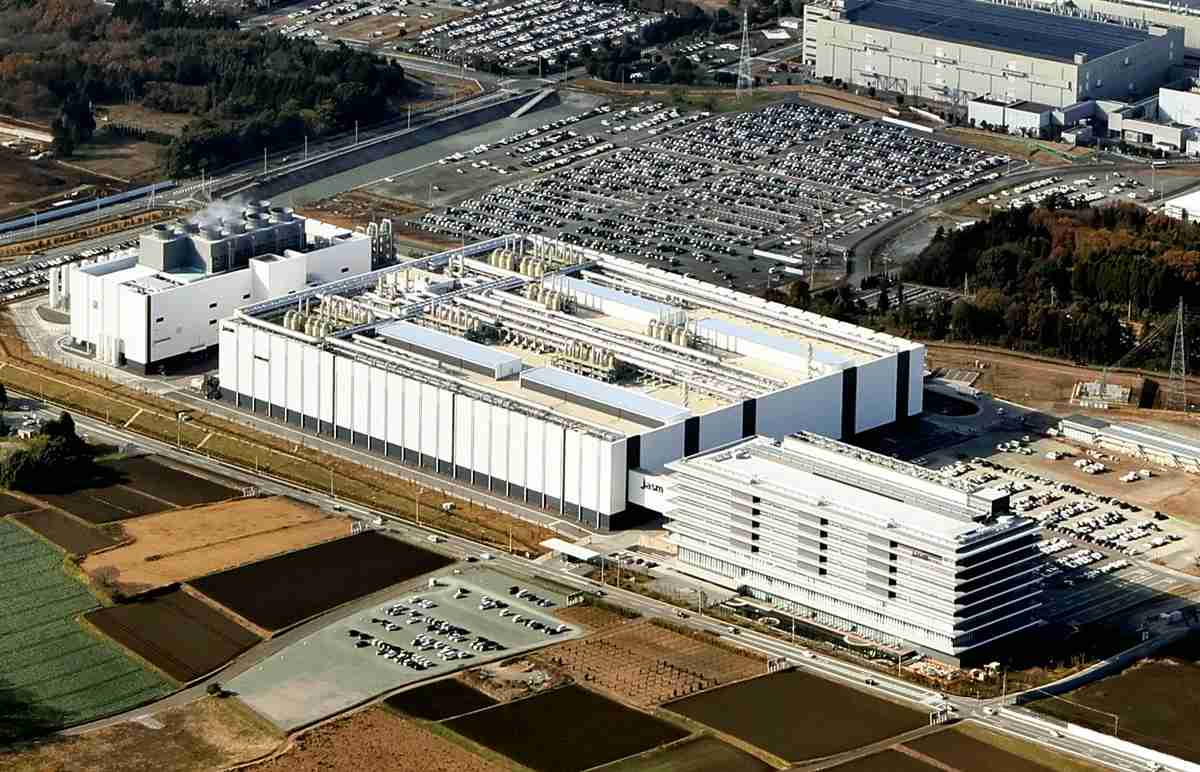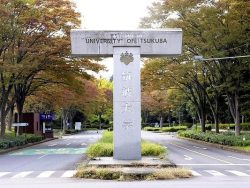TSMC to Launch Full-Scale Production in Japan, U.S., Germany as Part of ‘Silicon Shield’ Against China

Taiwan Semiconductor Manufacturing Co.’s plant in Kikuyo, Kumamoto Prefecture
21:00 JST, January 6, 2025
Taiwan Semiconductor Manufacturing Co. (TSMC) will begin full-scale production in the United States and Germany, after the start of mass production at its first Japanese chip plant in Kikuyo, Kumamoto Prefecture, last December.
New plants are scheduled to be completed in Arizona this year and in Dresden in 2027, while the construction of TSMC’s second Japanese factory is also expected to begin soon at a location adjacent to the Kikuyo plant.
Taiwan has adopted a “silicon shield” strategy to reduce the risk of Chinese aggression by concentrating production on the island, but it will also increase ties with other countries by spreading its production around the world.
‘10 years behind’
On Sunday, Kumamoto Gov. Takashi Kimura expressed his hopes for the new TSMC plant at a meeting of the local business community in Kumamoto City. “With the start of full operation, we can expect more suppliers around the plant and economic benefits for the local area. We hope to attract the establishment of TSMC’s third plant in the prefecture,” Kimura said.
The new plant, located in the countryside of Kikuyo, began mass production of semiconductors with circuit line widths of 12 to 28 nanometers last month. The semiconductors will be shipped to firms including Sony Group Corp., which produces camera sensors for Apple Inc.
Chips of between 12 and 28 nm are made as general-purpose products at TSMC. But in Japan, which has been said to be “10 years behind the world” in semiconductor manufacturing, chip plants were incapable of producing semiconductors with thinner than 40 nm. While the construction of TSMC’s second Japanese factory is expected to begin soon, TSMC may build its third plant in Japan in near future, although the location has not yet been decided.
TSMC is building a new plant in Arizona where mass production of 4-nm chips is expected to begin sometime between January and March. In 2027, the company’s first European plant is scheduled to be completed in Dresden, which will realize a “quadrupolar production system” with major plants in Taiwan, Japan, the United States and Germany.
The silicon shield defense strategy adopted by successive Taiwan authorities was intended to make Taiwan into the “semiconductor plant of the world” in order to make China aware of the risk of the disruption in the supply of chips and deter it from invading Taiwan.
TSMC has been playing the vanguard role in the strategy with Taiwan authority being the main shareholder of TSMC since its foundation in 1987. According to Taiwan research firm TrendForce Corp., Taiwan commanded 67% of the global market share in contracted semiconductor manufacturing and nearly 80% in cutting-edge products in 2023.
The reason for TSMC’s moves into Japan, the United States and Germany is the sudden change in demand for semiconductors during the COVID-19 pandemic in 2020 to 2022. The disruption to the global supply chain of chips brought attention to the risk of production being concentrated in Taiwan. The governments of Japan, the United States and Germany succeeded in attracting the chip giant’s plants through large subsidies.
Taiwan, which is slightly smaller than Kyushu, had no choice other than going overseas in the face of “five shortages” — a lack of water, electricity, land, specialist personnel and labor, all essential for semiconductor production.
Cause for concern
An upcoming cause for concern is the inauguration of incoming U.S. President Donald Trump on Jan. 20.
The United States posted a major trade deficit with Taiwan in 2023 and during Trump’s presidential election campaign, he claimed that Taiwan stole the U.S. semiconductor industry.
If TSMC ends up in Trump’s firing line, there may be increased tariffs on Taiwan-made semiconductors which could bring about the transfer of Taiwan’s relevant technologies to the United States. This can result in increased production costs since labor costs in the United States are about 30% higher than in Taiwan.
“TSMC has traditionally taken a neutral stance on the surface even when the U.S.-China conflict has intensified,” said an expert at Taiwan’s Aletheia University. “With the inauguration of Trump, the company will have no choice but to strengthen its stance in favor of Washington, which will have an impact on the firm’s business performance.”
Top Articles in Business
-

Prudential Life Insurance Plans to Fully Compensate for Damages Caused by Fraudulent Actions Without Waiting for Third-Party Committee Review
-

Narita Airport, Startup in Japan Demonstrate Machine to Compress Clothes for Tourists to Prevent People from Abandoning Suitcases
-

JR Tokai, Shizuoka Pref. Agree on Water Resources for Maglev Train Construction
-

KDDI Opens AI Data Center at Former Sharp Plant in Osaka Prefecture; Facility Will Provide Google’s Gemini AI Model for Domestic Users
-

Toyota Motor Group Firm to Sell Clean Energy Greenhouses for Strawberries
JN ACCESS RANKING
-

Japan Institute to Use Domestic Commercial Optical Lattice Clock to Set Japan Standard Time
-

Israeli Ambassador to Japan Speaks about Japan’s Role in the Reconstruction of Gaza
-

Man Infected with Measles May Have Come in Contact with Many People in Tokyo, Went to Store, Restaurant Around When Symptoms Emerged
-

Prudential Life Insurance Plans to Fully Compensate for Damages Caused by Fraudulent Actions Without Waiting for Third-Party Committee Review
-

Woman with Measles Visited Hospital in Tokyo Multiple Times Before Being Diagnosed with Disease






















